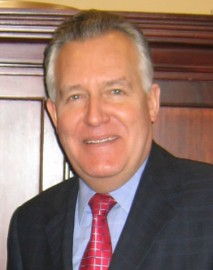
11 October 2002
Dear Mr Hain
You said on Newsnight this evening that all thoughts of a “federal superstate with all power concentrated in the Commission and in the European Parliament” were dead. I am very pleased with that.
But what would your reaction be to a European Union where the Council of Ministers held equal legislative power with the European Parliament? Where the six-monthly rotation of Council chairs was replaced by elected chairs each serving a 2½ or 5 year term? And where the European Commission – the executive of the Union – was chosen as a result of the European elections?
Such a model of the European Union would defend the rights and powers of member states, increase the influence of the citizens over the decision-makers of the Union, and give the Union a consistent and coherent approach to making and delivering policy. It could not be further from a superstate.
Richard Laming
Director, Federal Union
¤ ¤ ¤
29 October 2002
Dear Richard
Thank you for your letter of 11 October and your thoughts on an institutional model for the European Union. I am happy to address the points raised in your letter.
We believe that the current rotating Presidency comes at the expense of a consistent strategic direction for the EU. For this reason, the Government supports reform which will allow the European Council to set the strategic agenda for the Union. A full time President of the European Council, chosen by and accountable to Heads of Government, could oversee delivery of this agenda, and communicate a sense of purpose to Europe’s citizens.
However, I do not agree with your proposal for European elections for members of the College of Commissioners. We are seeking ways to strengthen the role of the Commission as the guardian of collective interest. As the Foreign Secretary has suggested, we need “to strengthen its ability to justify and protect the interests of the majority against the second thoughts of the few.” But I believe that elections would only serve to politicise the Commission, making it servant to whatever political party was in ascendance, and weakening its independent position. Such a proposal has little sympathy in the Commission itself.
Your point concerning the relative legislative powers of the Council of Ministers and the European Parliament is amongst those to be considered by the Future of Europe Convention, in its Simplification Working Group. We will be actively engaged in this debate, through the UK representatives, Lord Maclennan and Lord Tomlinson, as we are throughout the Convention itself.
The Government’s overall approach to reform is to ensure the EU institutions are capable of delivering practical benefits for EU citizens in an enlarged Union, in an efficient and effective manner. I enclose, for your interest, a copy of the Foreign Secretary’s recent article in the Economist, which sets these points in the wider context of institutional reform.
Peter Hain
More information
Jack Straw’s article in The Economist available at jackstraweconomist
